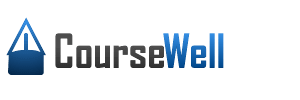
HEALTH ADMINISTRATION
Health Informatics & Administration
Health Informatics and Administration is a multidisciplinary field that combines healthcare, information technology, and business management. It focuses on the acquisition, storage, retrieval, and use of healthcare information to foster better collaboration among a patient's various healthcare providers. Below are key aspects of this career:
> Data Management and Analysis: Professionals in health informatics collect, interpret, and analyze patient data. This data can include medical histories, symptoms, treatment plans, and outcomes. They use this information to improve patient care, streamline operations, and enhance decision-making in healthcare settings.
> Technology Integration: This field heavily involves integrating information technology into healthcare settings. This includes managing electronic health records (EHRs), implementing healthcare software, and ensuring the secure transmission of patient data.
> Healthcare Administration: Those in health informatics often play a role in healthcare administration. They may manage information systems, help with the financial aspects of healthcare, and ensure compliance with healthcare laws and regulations.
> Improving Patient Care: The ultimate goal of health informatics is to improve patient care. By effectively managing healthcare data, professionals can help ensure that patients receive timely, personalized, and effective treatments.
> Interdisciplinary Collaboration: Health informatics professionals collaborate with healthcare providers, IT experts, and administrative staff to ensure that the healthcare system operates efficiently and effectively.
Career Opportunities: Careers in this field include roles like health information manager, clinical data analyst, health informatics consultant, and IT project manager in healthcare settings. There's a growing demand for professionals who can bridge the gap between clinical care and information technology.
Education and Skills: Typically, a background in healthcare, information technology, or business is beneficial. Many positions require a bachelor's degree, and advanced roles may need a master's degree in health informatics, health information management, or a related field. Skills like analytical thinking, communication, and an understanding of healthcare systems are crucial.
Impact of Technology Trends: As technology evolves, so does this field. Emerging technologies like artificial intelligence, machine learning, and big data analytics are increasingly important in health informatics, offering new ways to improve healthcare delivery and patient outcomes.
Overall, Health Informatics and Administration is a vital and growing field that plays a crucial role in the modern healthcare industry, blending healthcare knowledge with technology and management skills to improve healthcare delivery and patient outcomes.
Almost every career—from estimators, administrators and project managers—-need information management, IT & PM knowledge or mastery.
Coursewell’s IM Program also includes training for the CompTIA A+, CompTIA Healthcare IT and Certified Healthcare Information Systems Security Practitioner (CHISSP) certification exams.
Information Management encompasses almost every construction/ business field—from building healthcare facilities, hospitality, finance, government, NGO, and military to the construction, engineering, manufacturing, configuration management, and service management industries. All enterprises and organizations need information-age workers knowledgeable in the IT & PM areas. And gaining certification credentials in those two fields provide you with added validation of your expertise.
“Information management (IM) concerns a cycle of organizational activity: the acquisition of information from one or more sources, the custodianship and the distribution of that information to those who need it, and its ultimate disposition through archiving or deletion.” (Wikipedia, 2020)
Information Management (IM) combines Information Technology (IT) and Project Management (PM). In addition to business administration, AI/IT strategy, HR, accounting, people, and leadership skill development.
Further, the Coursewell’s IM Program includes training for the CompTIA Project+, Microsoft Project, SCRUM, ACP, CAPM, PMP, RMP certification exams.
Information Management comprises the management of people, data & computer systems, management information systems (MIS), business processes, databases, security, telecommunications, hardware, software, people, resources, and the networks an organization use to conduct its business and e-commerce operations in an efficient and effective way.
“Information management is closely related to, and overlaps with, the management of data, systems, technology, processes and – where the availability of information is critical to organizational success – strategy. This broad view of the realm of information management contrasts with the earlier, more traditional view, that the life cycle of managing information is an operational matter that requires specific procedures, organizational capabilities and standards that deal with information as a product or a service.
To apply, write a short essay indicating why you wish to join our global team of successful participants for a 12-months work-learn internship and send to walter@coursewell.com



